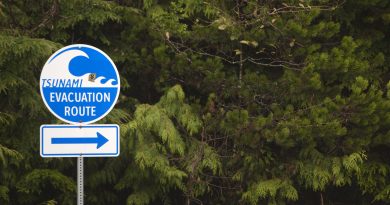N.W.T. gov’t rejects call to declare state of emergency in Norman Wells

Gov’t says rising costs for residents don’t meet territory’s definition of an emergency
The Government of the Northwest Territories says that rising costs in Norman Wells do not meet the territory’s definition of an emergency, and that declaring a state of emergency in the Sahtu community wouldn’t help residents much anyway.
The territorial government was responding to a motion MLAs passed in February, calling for a territorial state of emergency to be declared for humanitarian reasons, and to communicate that to the federal government.
Sahtu MLA Danny McNeely brought that motion forward, saying that rising food insecurity and heating costs, along with increasingly unreliable infrastructure for resupply, are making life and business in Norman Wells extremely difficult. Town councillors in Norman Wells had also declared a local state of emergency months earlier.
In a written response to the motion last week, first reported by Cabin Radio, the government says that declaring a state of emergency is warranted when special regulations are required to protect people’s safety, health or welfare, or to limit damage to property or the environment.
It says that while critical, the situation facing Norman Wells residents doesn’t meet the criteria for emergency. It also says that declaring a state of emergency wouldn’t create access to additional federal or territorial funding.
The rising costs in Norman Wells are related to a failed summer resupply in recent years due to low water levels. The territory said in its response that that is part of a “larger climatic trend,” and that the government is responding with both immediate relief and long-term planning for future such events.
In the short term, the territory points to its subsidy on fuel in Norman Wells, a $150,000 donation to the Norman Wells food bank and a $1.8-million emergency fund for businesses, Indigenous and community governments in the Sahtu and Beaufort Delta to offset transportation costs.
The response also mentions the territory’s efforts to ensure a successful winter resupply, including widening the winter road. It also mentions a $500,000 federal project that will bring wood stoves to the Sahtu to lower reliance on heating fuel.
The territory said that it’s continuing to advocate for federal funding to support N.W.T. communities, including continuing work on the Mackenzie Valley Highway to build a more resilient supply chain by connecting Wrigley to Norman Wells with an all-season road.
Related stories from around the North:
Canada: As winter sets in, Norman Wells, N.W.T., resident decries fuel costs, CBC News
Finland: One in 10 Finnish families with young children dealing with food insecurity: survey, Yle News
Norway: Will the green transition be the new economic motor in the Arctic?, Eye on the Arctic
Sweden: Electricity prices climb in Sweden as Russian gas pipeline goes offline, Radio Sweden
United States: New farm bill program aims to fight food insecurity in Alaska, Alaska Public Media



